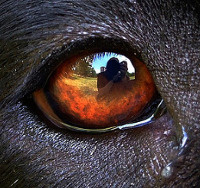 Symptoms of poisoning:
Symptoms of poisoning:
- Excess salivation
- Tears (crying)
- Frequent urination and defecation
- Muscle twitching
- Trembling
- Convulsions
- Severe vomiting
- Difficulty breathing
- Loss of consciousness
If you suspect your pet has consumed something that may be harmful, or if the animal is having seizures, losing consciousness, or having difficulty breathing, it’s important that you stay calm. Stress has a negative effect on your pet’s condition. Call your veterinarian, an emergency veterinary clinic, or an animal poison hotline.
- National Animal Poison Control Center 1-800-548-2423
- ASPCA Poison Control Hotline 1-888-426-4435
(There are fees for these calls)
 To reduce the absorption of poison in your pet’s body, there are two age-old treatments that are also used in humans. Ipecac induces vomiting, and activated charcoal soaks up poisons internally.
To reduce the absorption of poison in your pet’s body, there are two age-old treatments that are also used in humans. Ipecac induces vomiting, and activated charcoal soaks up poisons internally.
Start with a dose of Ipecac. If you don’t have syrup of ipecac, give hydrogen peroxide, about a teaspoon per ten pounds of body weight. If you do have ipecac, give two to three teaspoons, depending on your pet’s size. Administer this treatment only once, allow your pet to vomit, and then follow with activated charcoal.
Do not induce vomiting if your pet:
- swallowed a cleaning product containing acids or alkalis. They can severely burn throat tissue when thrown up.
- swallowed a petroleum-based product. These types of cleaners exude fumes that can cause pneumonia if inhaled.
- is groggy or confused.
If any of the above conditions exist, go straight for the activated charcoal. If it’s in powder form, mix with water to make a slurry. The recommended dose is 1 to 3 grams of charcoal per 1 pound of body weight.  Some veterinarians recommend higher dosages than this, but the above roughly translates to one teaspoon for pets under 25 pounds, and two teaspoons for pets over 25 pounds.
Some veterinarians recommend higher dosages than this, but the above roughly translates to one teaspoon for pets under 25 pounds, and two teaspoons for pets over 25 pounds.
Give a few pellets of Nux Vomica 30c on the tongue ever fifteen minutes for a total of three treatments. Stop if symptoms worsen.
Remain composed, keep your pet warm and quiet, and get to a veterinarian as soon as possible. Bring with you the suspected poisonous material if you have an idea what it is.
Common household plants such as lilies, azaleas and kalanchoe. Rhododendron, sago palm and schefflera can also be harmful to pets.
Chemical bait products designed for mice, rats and other rodents. When using any rodenticide, place the product in areas that are completely inaccessible to companion animals.
Common household cleaners such as bleaches, detergents and disinfectants. Gastrointestinal distress and irritation to the skin, eyes or respiratory tract may be possible if a curious animal has an inappropriate encounter with such products.